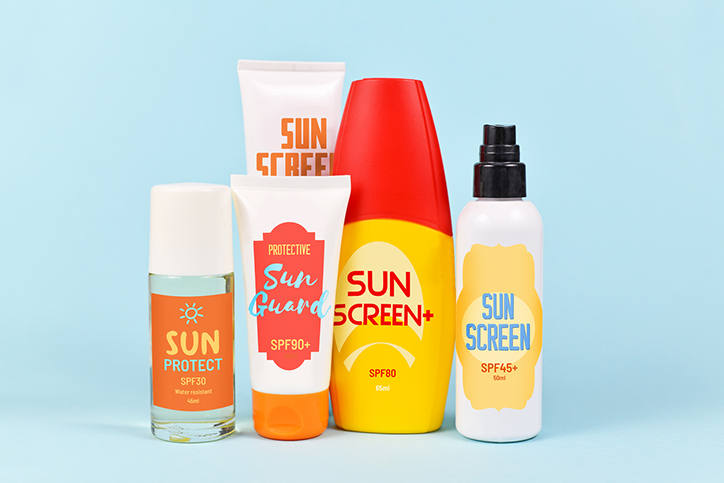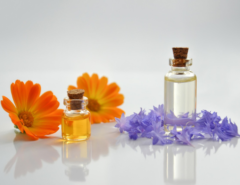Whether you’re headed to the beach, hiking in the mountains, working in your yard, or just walking the dog, sunscreen is an important step when getting ready to go out and about. Sunscreen helps prevent sunburn and premature skin aging, and it reduces the risk of skin cancer by blocking or absorbing harmful ultraviolet (UV) rays. Let’s look at the different types of sunscreens, how to use them correctly, and what to do if sunscreen is used incorrectly or causes a reaction on the skin.
Types of Sunscreen
It is recommended to choose a broad-spectrum sunscreen to protect against both UVA (aging) and UVB (burning) rays.
There are two main types of sunscreen – chemical and mineral.
- Chemical sunscreens: absorb UV rays before they can damage the skin; can cause irritation or allergic reactions on the skin; doesn’t leave a white coating on the skin.
- Mineral sunscreens: sit on top of the skin to reflect UV rays; less irritating to the skin than chemical sunscreen; may leave a white coating.
Sunscreen comes in various sun protection factor (SPF) amounts. This number tells us how well a sunscreen will protect the skin from UVB rays. As the SPF value increases, sunburn protection increases. The SPF number does not indicate how long you can spend in the sun before reapplying—for example, SPF 15 doesn’t last for 15 hours. The SPF number describes the amount of protection from the sun the product can provide—the higher the SPF amount, the more protection from sunburn. For more information, please visit the U.S. Food & Drug Administration’s SPF page.
Sunscreen comes in many forms:
- Lotion
- Spray
- Stick
There are also different types, such as tinted, water-resistant, and reef-safe.
Lastly, avoid using products that contain both DEET insect repellent and sunscreen. Sunscreen must be reapplied frequently. DEET can last up to 8 hours and will not wash away with water so it should not be reapplied. Reapplying a combination product can be dangerous. Combination products can also lessen the effectiveness of the sunscreen’s SPF.
Sunscreen Label
Always read the label of sunscreen products before using them. The label will include information on how often to reapply according to the SPF amount and product. Also be sure to check the expiration date before use. Expired products may not provide the amount of protection noted on the label.
Sunscreen Application
Be sure to apply sunscreen even if it’s cloudy! It’s recommended to apply sunscreen 15-30 minutes before going outdoors so it has enough time to absorb before you are exposed to the sun. You will likely need to reapply every two hours, or after swimming or sweating, depending on which product you use (check the label).
Use caution around the eyes and mouth when applying sunscreen. When using a spray, do not spray directly on the face, rather spray on hands first, then apply to the face.
When applying on children, be cautious around the eyes and mouth. Since children often imitate adult behavior, they may try to apply these products on their own. They might apply too much product, get the product in their eyes and/or mouth, or eat the product. Store these products up, away, and out of sight from children.
Unintended Exposures
Follow these first aid steps if you or someone you know is exposed to a sunscreen product.
- Eyes: flush the eye with lukewarm water for 15 minutes. Try to blink as much as possible but do not force the eyelid open. Then call the Maryland Poison Center at 1-800-222-1222 for further instructions. Sunscreen may require more than 15 minutes of flushing because the product is often water resistant.
- Mouth: wipe the inside of the mouth with a wet towel or rinse out the mouth. Give a small drink of water. Then call the Maryland Poison Center at 1-800-222-1222 for further instructions. These products can be irritating to the stomach and can cause vomiting or diarrhea.
- Skin reaction: if irritation develops after skin application, wash the sunscreen off thoroughly using soap and water, and stop further use.
As always, the Maryland Poison Center is available 24/7 at no cost. Our poison specialists are available to help you with sunscreen questions or exposures, along with other summer poisons. Stay poison-safe and have a great summer!





Leave a Reply